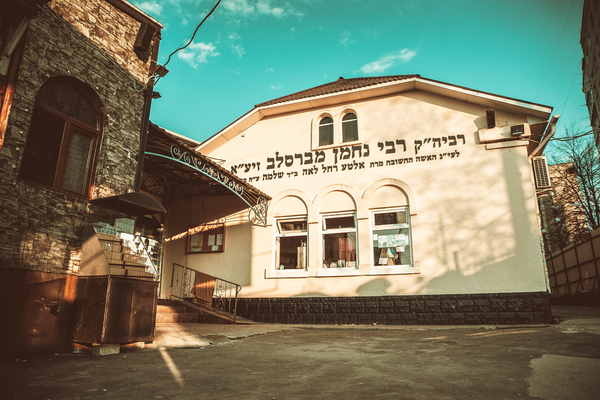Ukrainian officials claim that Russia could launch missile attacks on Uman during Jewish holiday period with the aim of “destabilizing” relations between Ukraine and other states.
By Lauren Marcus, World Israel News
Ukrainian authorities pleaded with potential Jewish visitors to skip the trip this year, warning that they would be risking their lives should they travel to the embattled eastern European country.
Tens of thousands of Jewish and Israeli tourists visit the city of Uman ahead of the Jewish New Year. The city hosts the burial site of Rabbi Nachman of Breslov, the founder of the Breslov Hasidic sect, the central attraction of the annual religious pilgrimage.
In an official statement, Ukraine’s highest security agency and its national police said that they “recommend that Hasidic pilgrims refrain from visiting Ukraine this year to celebrate Rosh Hashanah.”
The statement attributed “the high probability of missile strikes and provocations by Russia aimed at destabilizing international relations between Ukraine and other states” as the reason for the travel warning.
“Please refrain from traveling to Ukraine. And those who still decide to make a pilgrimage must strictly adhere to the requirements of security measures: curfews, responding to air alarms, as well as following all instructions of law enforcement officials,” the statement continued.
“This is the only way to minimize the existing risks for believers on this important holiday for the Jewish people.”
According to Hebrew-language media, some 1,000 Jewish pilgrims have already arrived in Uman, and some 50 charter flights are expected to depart from Israel to the city in the coming weeks.
Coronavirus restrictions imposed by the Ukrainian government saw very few pilgrims access Uman in 2020 and 2021.
In 2020, despite repeated warnings that Jewish tourists would not be allowed to enter Ukraine, more than 2,000 pilgrims arrived at the Belarussian border and attempted to cross into the country on foot. Ukrainian officials refused to permit the pilgrims to enter the country, leading to a nearly weeklong standoff which saw the Hasidim camp out in a no-man’s-land between Belarus and Ukraine.



